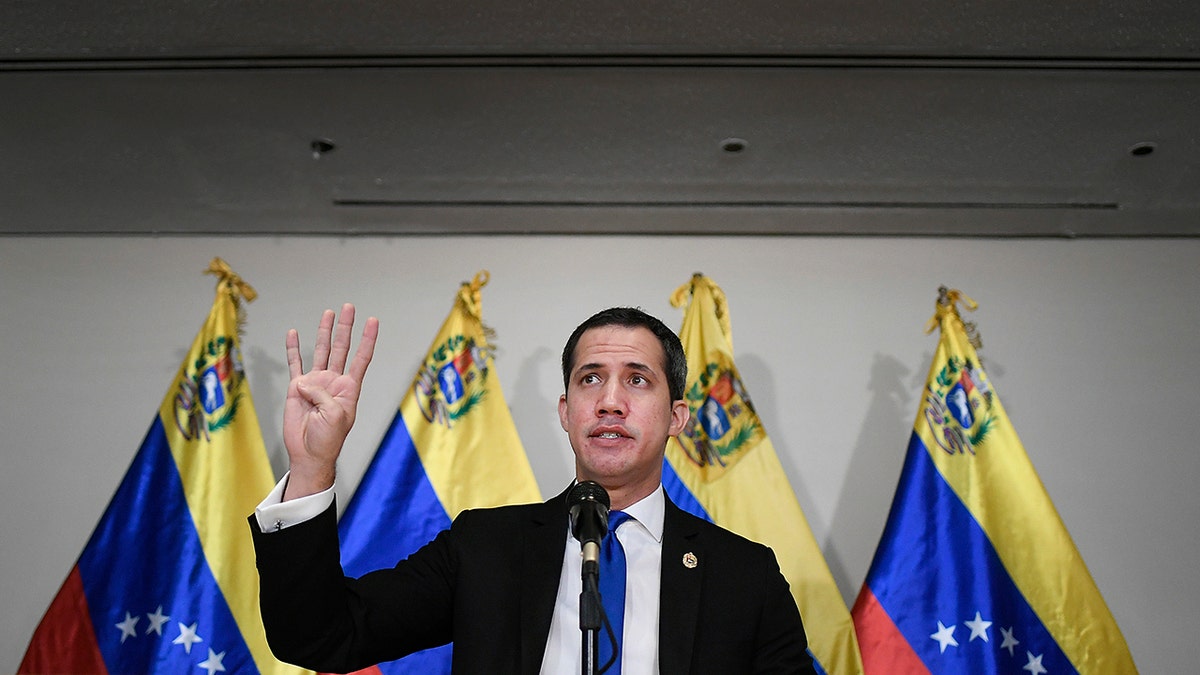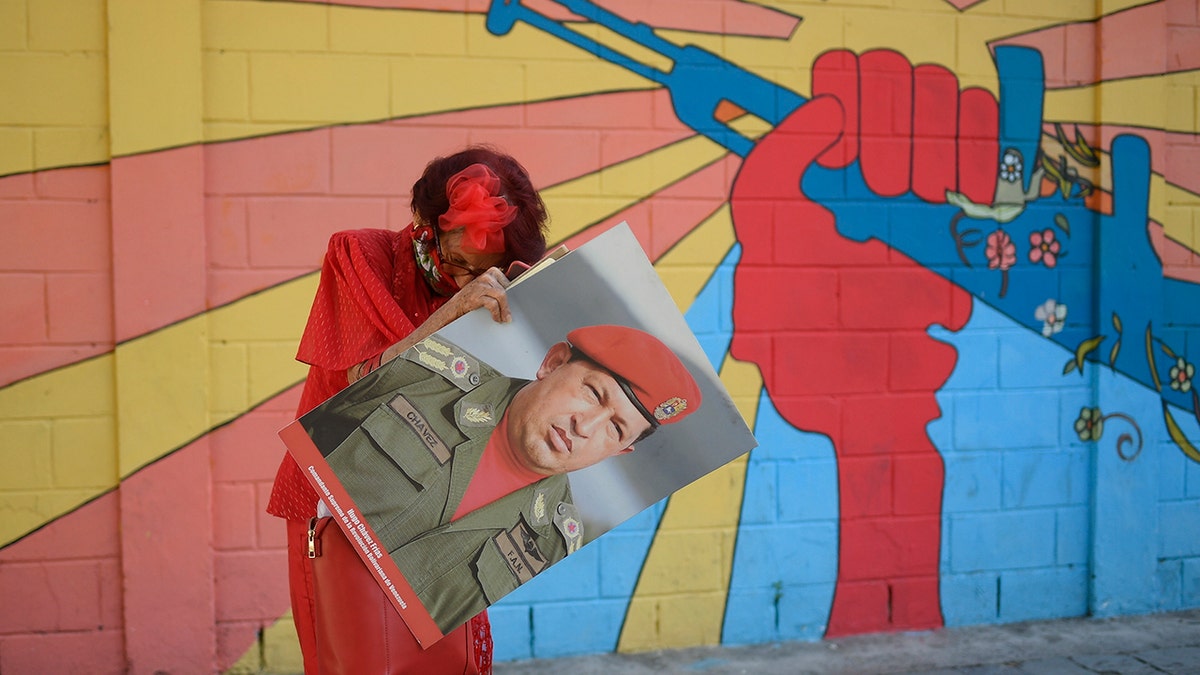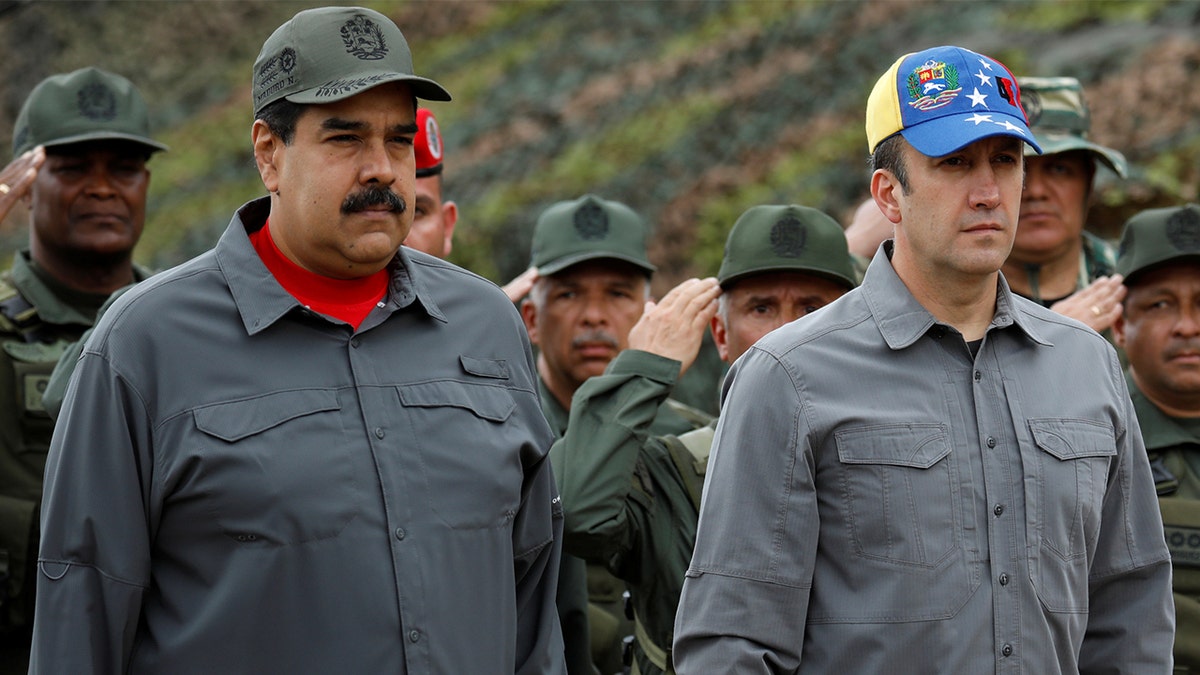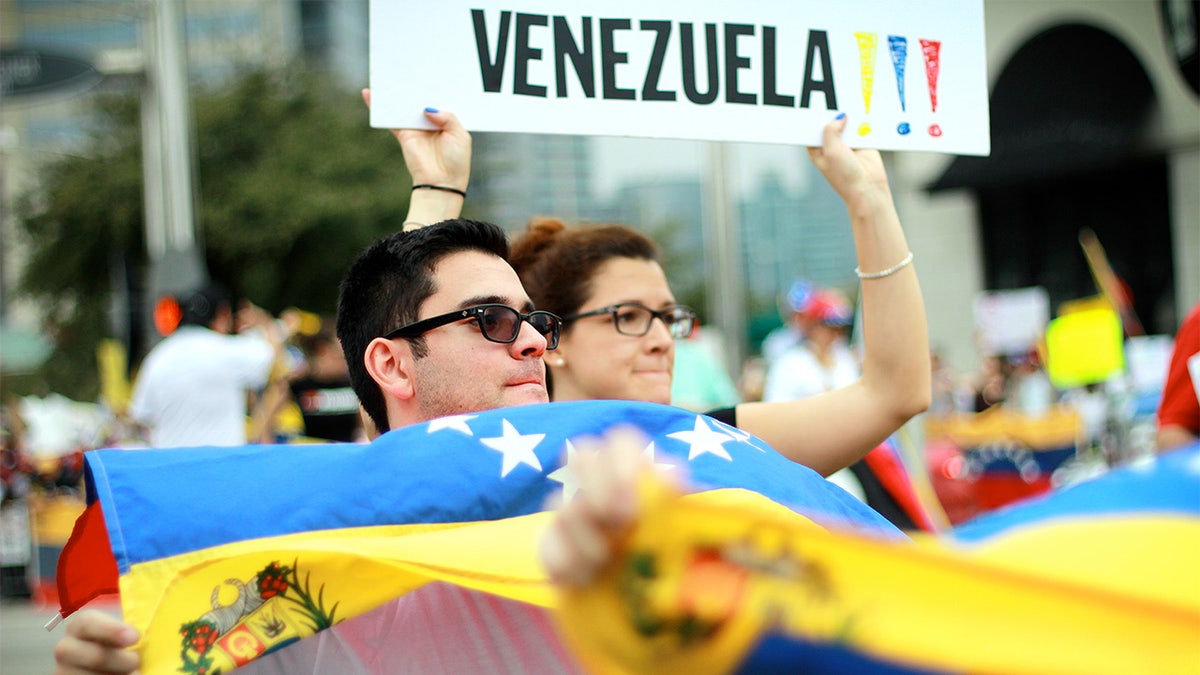Venezuela dictator Maduro remains in power despite efforts to oust him
Fox News correspondent Benjamin Hall revisits last year's attempted uprising on 'Special Report'
Two years ago, the Trump administration government took a bold stance when it declared that it was no longer recognizing Nicolas Maduro as the legitimate president of Venezuela.
Instead, the U.S. – followed by more than dozen countries including the European Union – backed Juan Guaido, a little-known opposition leader, as the South American country’s interim leader.
This decision triggered massive upheaval as thousands of Venezuelans poured into the streets of Caracas, calling for Maduro’s resignation.
However, the socialist leader’s much-anticipated fall from grace never really happened and two years on, Maduro remains firmly inside the Presidential Palace, presiding over a grave humanitarian crisis and dizzying economic degradation.
MADURO'S GRIP TIGHTENS AS VENEZUELAN SOCIALISTS TAKE CONTROL OF ONCE-DEFIANT CONGRESS
Evan Ellis, research professor of Latin American Students at the U.S. Army War College’s Strategic Studies Institute, told Fox News that Maduro’s grip on Venezuela never fully released because while few actually supported the embattled leader, "many had long been complicit in the criminal activities that had become the lifeblood of the regime."

Venezuelan opposition leader Juan Guaido speaks at a press conference in Caracas, Venezuela, Saturday, Dec. 5, 2020, a day before parliamentary elections. (AP Photo/Matias Delacroix)
"Guaido and his team, and the Trump Administration, deserve credit for coordinating an extensive international diplomatic effort under extraordinary circumstances, which ultimately resulted in 57 countries across Latin America, Europe, and elsewhere, recognizing his legitimacy," Ellis said. "Guaido and his government also deserve extraordinary credit that, without control over Venezuelan territory or resources, they not only engaged within Venezuela against constant implicit and explicit threats by the Maduro regime but coordinated a broad-ranging international diplomacy."
Earlier this year, Maduro secured an even tighter grip on power – resuming control of Venezuelan Congress, the only wing it didn't domineer following elections in December. The vote was largely snubbed by the opposition and condemned as a mockery.
Some analysts say the loss by the opposition illuminates the lack of accordance Guiado had in appealing to an exhausted and disappointed Venezuelan majority.
Additionally, despite initial hopes by U.S. officials and anti-Maduro activists that the military top brass would steadily abandon their loyalty to the socialist leader, he retains a sturdy grip on the Armed Forces.
DAUGHTER OF CITGO 6 EXECUTIVE JAILED IN VENEZUELA CALLS ON TRUMP TO BRING 'POLITICAL PRISONERS' HOME
Sources in Venezuela tell Fox News that Maduro uses the military to "control the food distribution, and some imports and customs," making the starving populous all the more adherent to the socialist command.
"The (Trump) administration talked tough, but it was never backed up with a robust plan. There was this false belief that if we huffed and we puffed, the Venezuelan regime would fall. We actually needed a strategy and more sustained engagements," argued Brett Bruen, a former White House director of global engagements. "Maduro has strengthened his hold on power in the last year. COVID-19 has helped. He was able to justify repressive measures as being in the service of public health. Russia and China have continued to reinforce his position, while the West was distracted with the pandemic."

A government supporter known as "Caperucita," or Little Red Riding Hood, holds a photo of late Venezuelan President Hugo Chavez. (AP Photo/Matias Delacroix)
While the U.S. has maintained a far more fervent stance against the "illegitimate" leader, there are some signs that the Washington-led pushback may be starting to fragment.
In a statement last week, the E.U. pledged to continue its "engagement" with opposition leader Guaido, not referencing to him as the "interim president" as it had previously. An E.U. official insisted to the Associated Press that there was no change to the union’s posture
Meanwhile, Secretary of State Mike Pompeo declared that the U.S. still considers the Maduro regime to be "illegitimate" and "will not recognize it nor its pronouncements."
"President Guaidó and the (old) National Assembly are the only democratic representatives of the Venezuelan people as recognized by the international community, and they should be freed from Maduro's harassment, threats, persecution, and other abuses," he said.
The U.S., E.U. and Lima Group, a multilateral body established to oversee a peaceful Venezuelan power transition, have jointly broadcast calls for new, democratic elections in Venezuela.
POMPEO CONDEMNS 'WRONGFUL' CONVICTIONS OF 'CITGO 6' IN VENEZUELA
However, now with an apparent fractured opposition, Maduro is free to pursue so-called "hate" charges against those perceived to be dissidents of the government, raising even more concern that challenging voices and truth to power will be eased further in the authoritarian country.
According to one Caracas-based analyst, who requested anonymity due to security reasons, the hefty economic sanctions piled on the Maduro regime by the U.S. over the recent years have been useful – but their effectiveness has slowed.
"Sanctions on PDVSA and giving control of the Venezuelan government assets in the U.S. to the Guaidó administration has strangled the Maduro regime financially, but that was not enough," the source explained. "What was missing was a coordinated effort between the Trump administration and the rest of the international community involved. The European Union decided not to embark on a 'maximum pressure' strategy, instead only issuing personal sanctions. Thus, Maduro eventually is finding ways to evade the crippling U.S. sanctions."

Venezuela's President Nicolas Maduro, Venezuela's Vice President Tareck El Aissami and Cilia Flores take part in a military exercise at Fuerte Tiuna military base in Caracas, Venezuela February 24, 2018. REUTERS/Marco Bello - RC17D57B06D0
A U.S. oil executive operating in the gas-rich nation also told Fox News that sanctions were at first effective, with oil production going from approximately 1.2 million barrels down to the 400k level average we see currently.
"However, sanctions are ‘a wasting asset,’ and they had unintended consequences, most pressingly, an increase in illegal mining and drug trade which now accounts for a majority of money coming into the country and creates added regional instability," the insider explained. "As well as allowing for other foreign actors to find ways to evade sanctions and ultimately profit from these sanctions."
One U.S.-based executive, who was not authorized to speak on the record, contended that the U.S. potentially "over-estimated" the credibility and strength of the opposition with the Venezuelan opposition, as well as Maduro's capacity to keep the "military on his side."
Multiple sources highlighted that the combined support of Russia, China, Iran, Turkey, and Cuba has proved enough to keep Maduro afloat.
US DESIGNATES CUBA STATE SPONSOR OF TERRORISM
The onslaught of the coronavirus pandemic paved the way for Maduro to harden his grasp on the increasingly impoverished nation through means of enforced lockdowns and limiting of movement.
Officially, the country has registered just over 1,000 deaths induced by the global pandemic – but most experts contend that figure is far higher given the limited health resources and lack of testing.
"The humanitarian situation is still critical and getting worst. The minimum wage is now $1.10 per month. COVID-19 put the brakes on migration for a while, but now is starting again," one Caracas-based source said. "U.N. Agencies estimate 2.4 million Venezuelans will flee the country in 2021, even with COVID-19 still lurking around. Politically, the opposition is again in disarray, with multiple factions fighting over the direction over the fight against Maduro."

Houston, Texas, USA - February 23, 2014: Venezuelan citizens in Houston protest against the Venezuelan government and its perceived anti-Democratic policies.
Johan Obdola, president of the Canada-based Global Organization for Intelligence (IOSI), stressed that 90% of the population lives in a critical state of survival.
"[About] 60% of Venezuelans are registered with severe cases of malnutrition and mental health issues. In cities and towns of Venezuela, it is more critical where the majority of the population, it is normal that in a week they only eat rice, butter or pasta," he asserted. "The scenario is that the country's devastated economy now mainly moves money coming from narco-trafficking. Maduro allowed the military sector to operate in the business of selling oil in Venezuela. They are also profiting from human trafficking and sexual exploitation of women as well as of children."
CLICK HERE TO GET THE FOX NEWS APP
However, Ellis underscored that, as it stands, Maduro's government actually controls very little beyond Caracas.
"Maduro himself has little power; his survival reflects that those in his military and government with the power to act, are sufficiently implicated in years of the corruption of the Chavista system," he said. "For the moment, they fear the fallout from seeking to replace him by a democratic government – or a more competent authoritarian one – more than they fear the consequences of his bad policies."
It remains to be seen if the incoming Biden administration will drastically alter the current approach.
"It doesn't work. It's nice to see them having trouble and prices over their heads, but that's it," added Caesar Oporeza, a Caracas political commentator. "The only solution will be by lethal force. They are criminals. Period."










































